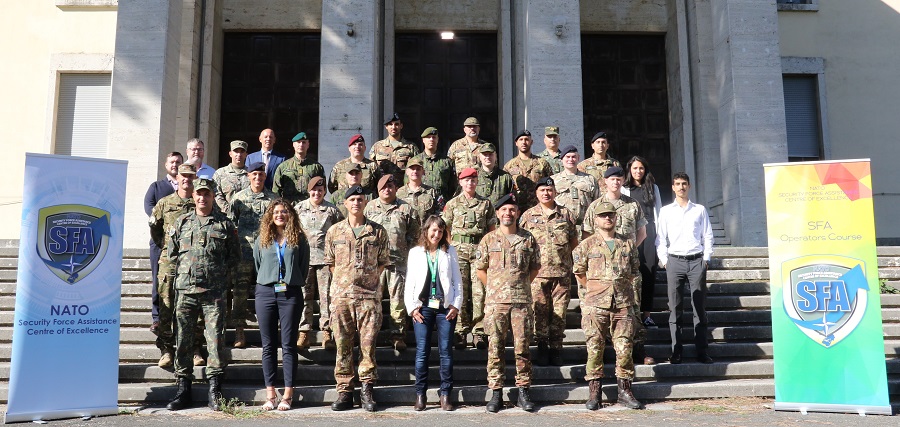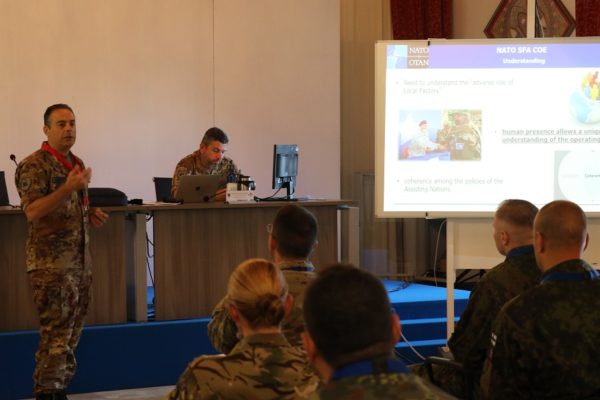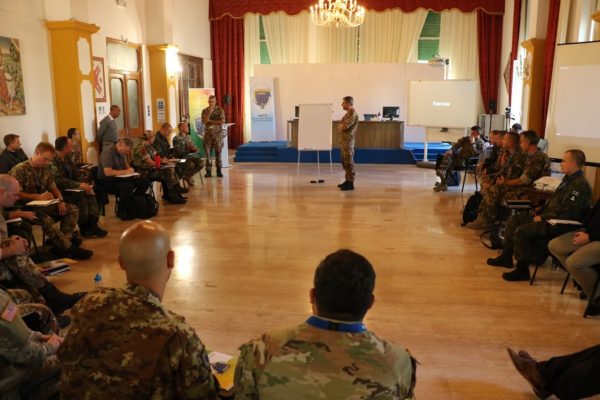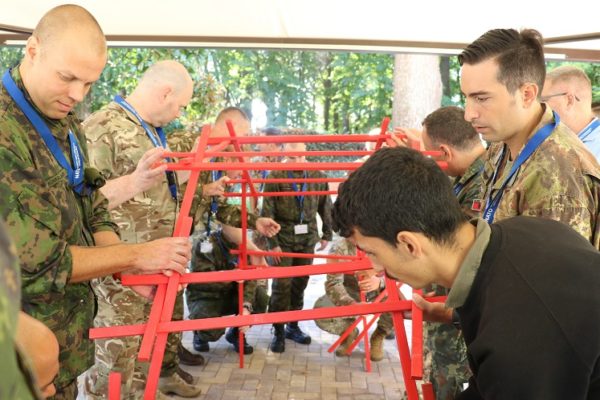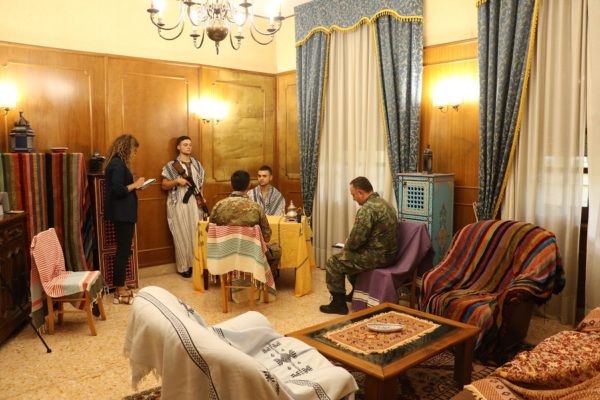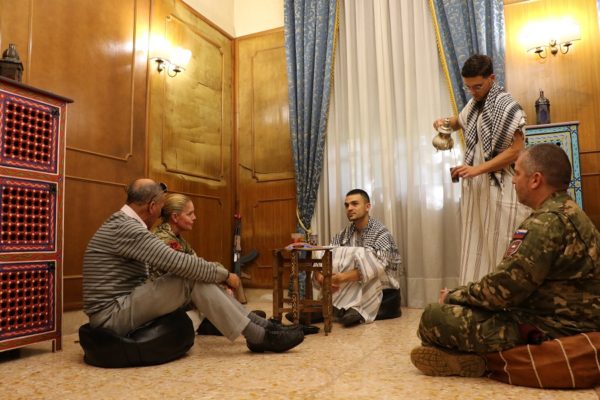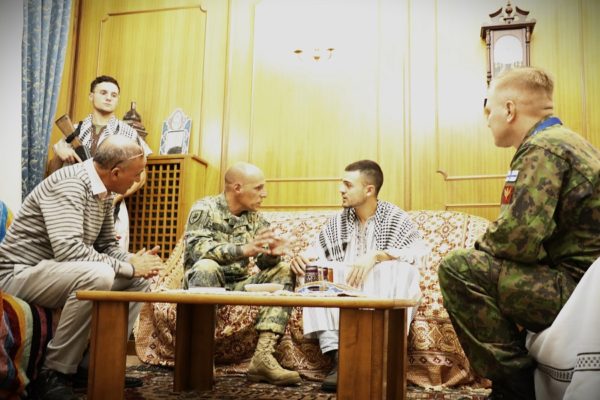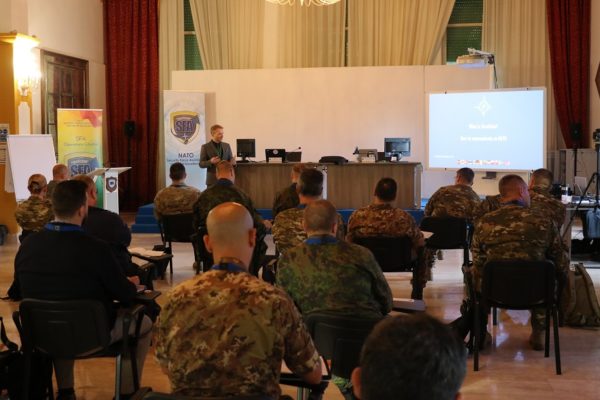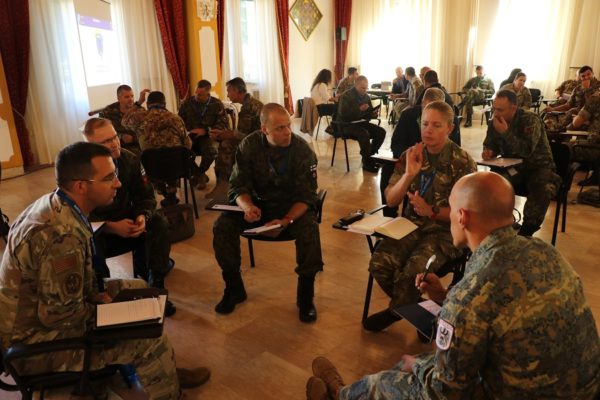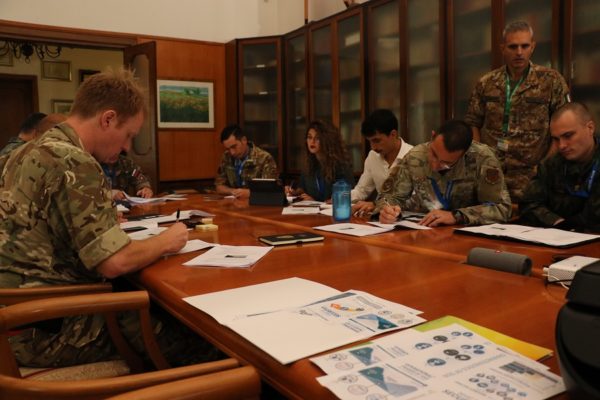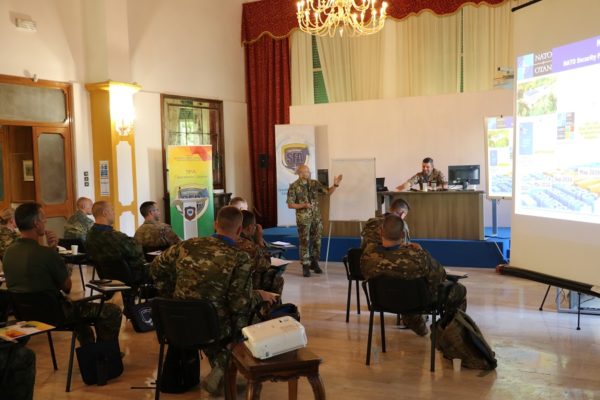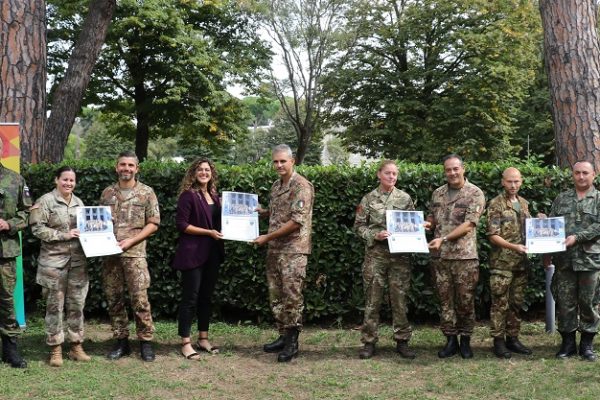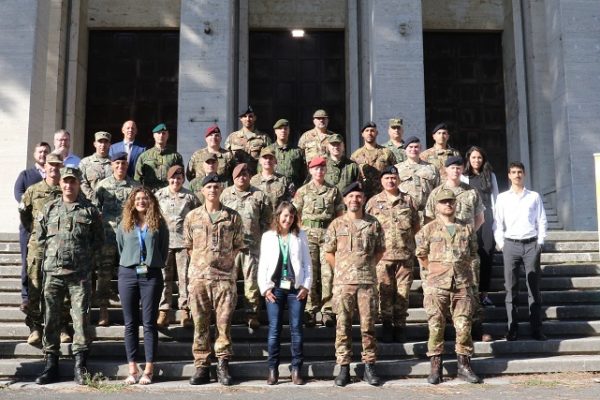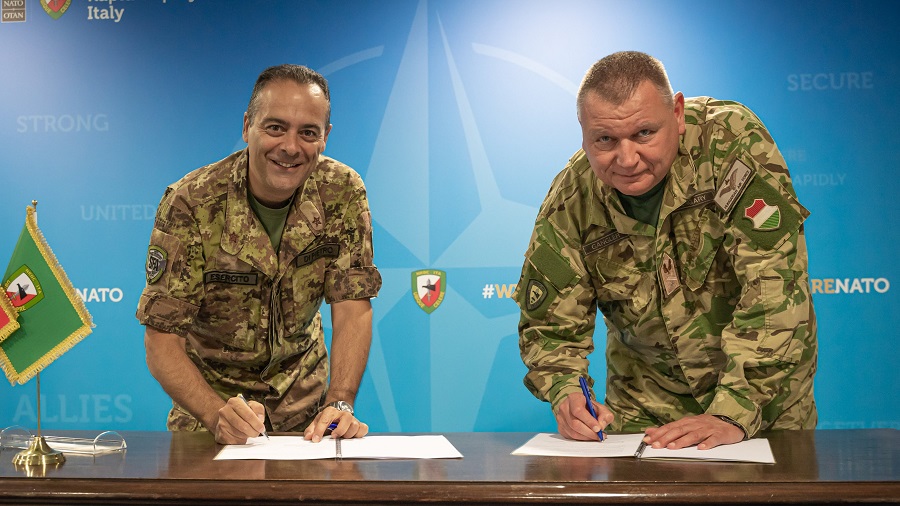From the 3rd to the 7th of October, the second edition of the SFA Operators course 2022 took place at the Italian Army Infantry School Officers’ Club.
The aim of the course is to improve the competency and effectiveness of SFA operators working in current and future missions of defence and related security capacity building.
After the introduction of the Security Force Assistance framework and activities, the course started with a teambuilding exercise where participants learnt the importance of developing trust, communication, and empathy, essential skills for a SFA Operator.
On the other hand, among the theoretical activities, the following attracted particular interest:
- importance of mediating within a local culture and understanding how to build a solid bond with the counterpart by using effective communication and a specific influence methodology;
- how to use an interpreter, not only as a translator, but as an asset to conduct higher quality advising;
- how to engage in STRATCOM and learning its importance during the digital era;
- use of case studies in order to have real-world examples and gain deeper understanding of the issues surrounding security assistance.
With a view to furthering a more complete understanding, a huge part of the course was dedicated to practical learning. In fact, after being divided into syndicate groups, the participants were tasked to develop a “conflict map” with the intent of drawing links between local forces, institutions, capability efficiency, and relevant stakeholders. Furthermore, they deepened their knowledge on the importance of respecting the HN’s culture by participating in a roleplaying scenario as advisors, by interacting with a counterpart and interpreter.
The SFA Operators course is a training opportunity that offers the possibility to its participants to widen their area of expertise, practical tools, and critical thinking while they are deployed in SFA missions.
NATO SFA COE has been hosting this course for several years and it aims to continue its contributions by enhancing NATO’s and its partners’ human capital, as well as, satisfying the performance gaps identified within the Military Contribution to Peace Support Discipline.








